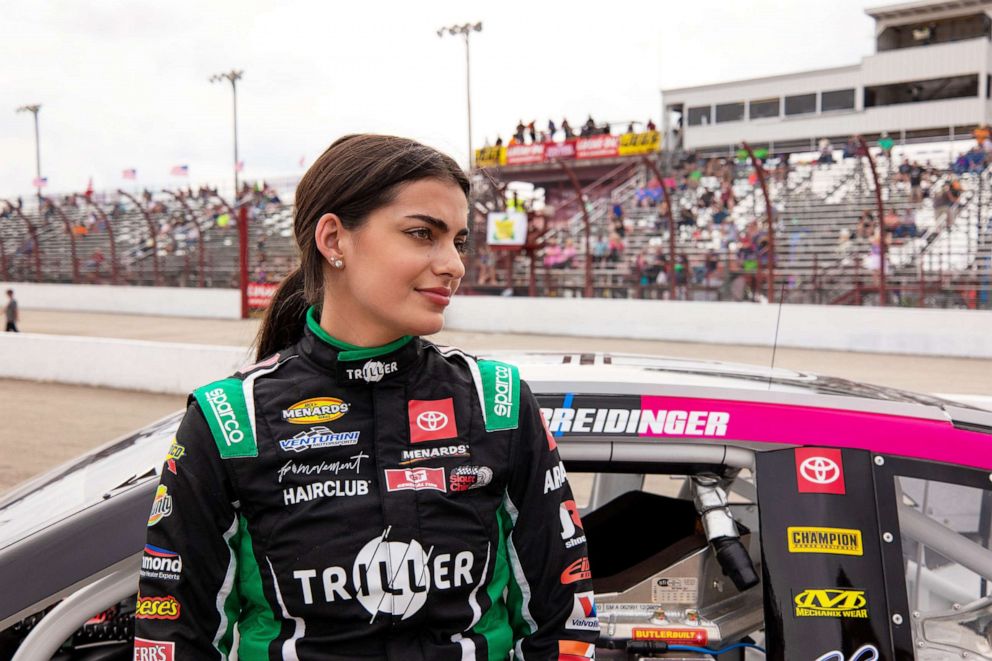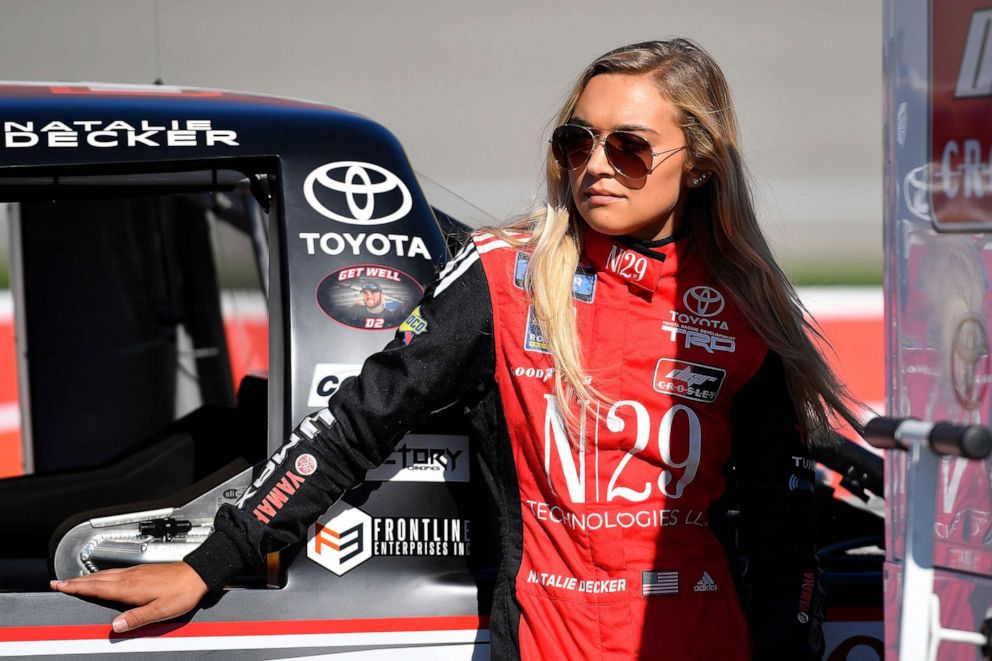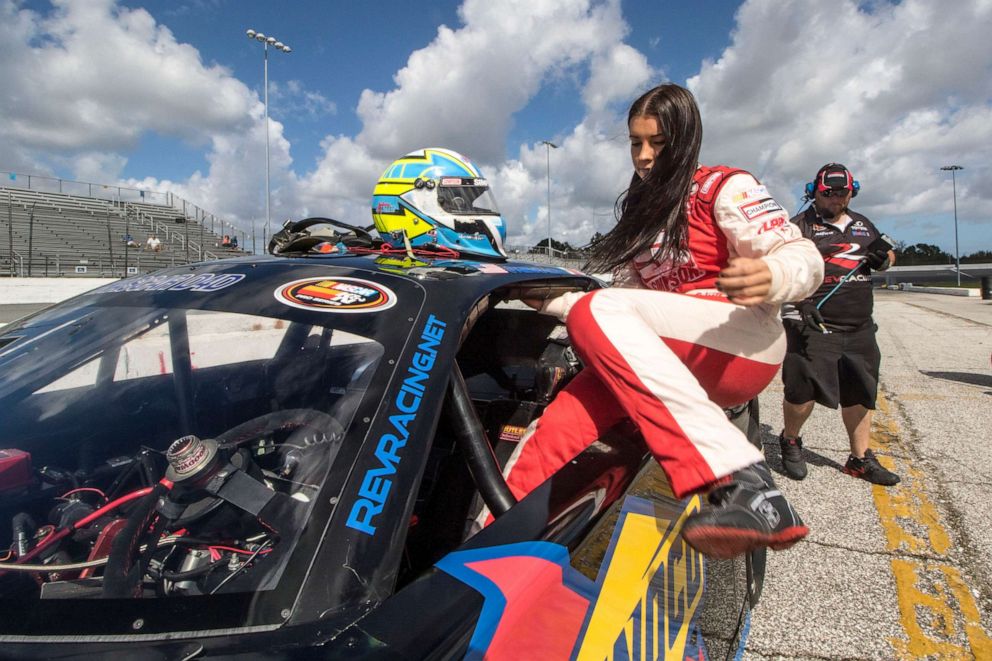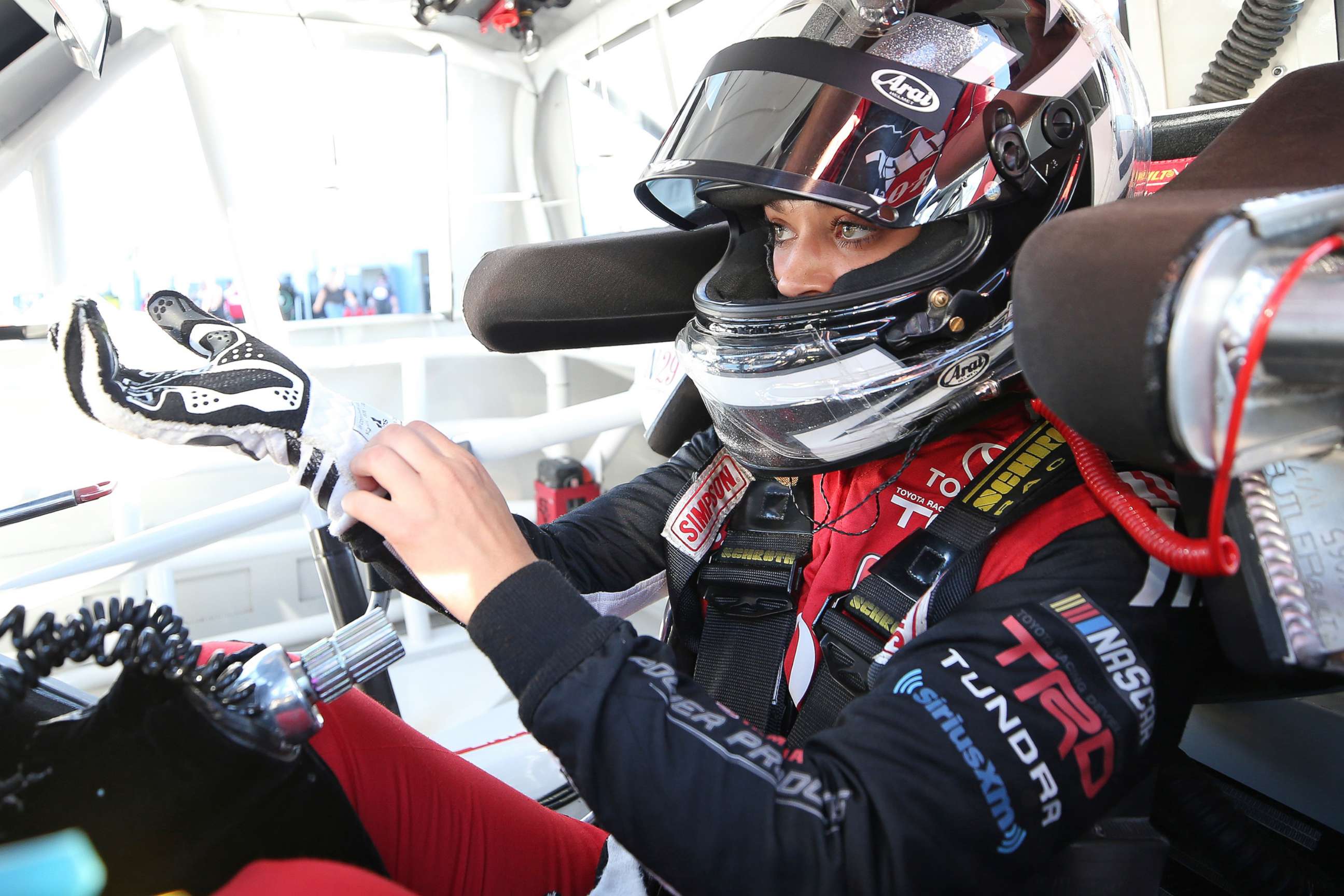Female NASCAR drivers on the challenges in competing in the male-dominated sport
Drivers say more funding is key to supporting women on the track.
Though there have been strides over the years to diversify the male-dominated sport of auto racing, there are currently no female drivers competing at NASCAR's highest level, the Cup Series. The last time a woman drove in the Daytona 500 -- the kickoff to the premier racing series -- was 2018, with trailblazer Danica Patrick.
For women competing professionally in the sport, exposure and sponsorships are key to rising in the ranks, but both can be difficult to come by, female NASCAR drivers told ABC News.
"It's great that men and women can compete in NASCAR. But I think that inequality is still there and it kind of stems off of the fact that we are lacking on funding," Toni Breidinger, 22, who is competing in the ARCA Menards Series this season, told ABC News.

Natalie Decker, 24, who is competing one level below the Cup Series in the NASCAR Xfinity Series this season, told ABC News she has looked for sponsorships since she started racing at the age of 9 to help fund the expensive sport. On top of funding, gaining respect in the sport as a woman is another obstacle, she and Breidinger said.
"It's really difficult to gain respect, be trusted and for someone to really understand that you know what you're doing. And that's difficult coming into the sport with little funding and maybe not a lot of seat time," Decker said. "When you're new and then you're also a woman on top of that? There's so many obstacles."

Amber Balcaen became the first Canadian woman to win a NASCAR-sanctioned race in the U.S. in 2016. However, her biggest accomplishment, she told ABC News, was earning her sponsorship with RV product manufacturer ICON Direct last year.
"It's been a long road, a lot of struggle, and I'm a one-woman show so I'm doing everything on my own," Balcaen, 29, who is competing in the ARCA Menards Series this season, told ABC News. "For me to be able to learn the business skills to be able to sign million-dollar sponsors is to me the thing that I'm most proud of because I had to learn how to be a businesswoman before a race car driver to be able to be a race car driver."

Beyond raising "millions of dollars" just to get on the track, having female drivers paving the way is also crucial, Balcaen said.
"When I saw Danica Patrick in the Cup Series, that made me believe that I could somehow, someday be in the Cup series," Balcaen said. "It's a lot easier when you see that it's been done before for you to believe in yourself to achieve that as well."
Patrick didn't win a race in seven seasons, but her seven top-10 finishes are most among female drivers in NASCAR history. She retired from full-time competition after the 2017 season.
Through a new sponsorship opportunity with Busch Light, all three women will be able to gain financial backing and exposure that they hope will encourage more women to enter the profession, both on and off the track.
The Busch Light Accelerate Her Program, which is being announced timed to the Daytona 500 this Sunday, marks a $10 million commitment from the brand to sponsor every female driver in NASCAR ages 21 and up over the next three years.
"NASCAR racing is one of the only sports nationally where men and women can compete at the exact same level," Krystyn Stowe, head of marketing for Busch Family Brands, Anheuser-Busch InBev, told ABC News. "Let's elevate these women and get them the opportunity and the time and the visibility that they need."
In addition to Breidinger, Decker and Balcaen, the other recipients of the inaugural sponsorship are Jennifer Jo Cobb, Melissa Fifield, Stephanie Moyer and Brittney Zamora, Busch Light said. A portion of the commitment will also be reserved for up-and-coming talent, the company said.

Since 2004, NASCAR has worked to develop female and ethnically diverse drivers through its Drive for Diversity Program. Alumni include NASCAR Cup Series drivers Bubba Wallace and Daniel Suárez.
The NASCAR Drive for Diversity Program also aims for diversity across the sport, including the crew. NASCAR, founded in 1948, didn't have its first female pit crew member -- Christmas Abbott -- until 2012. In 2017, Brehanna Daniels, an alum of the Drive for Diversity program, became the first Black female over-the-wall tire changer in NASCAR's history.
Last year, the NASCAR Drive for Diversity Awards honored Breidinger, the first Arab-American female driver to participate in any NASCAR national series, with its Developmental Series Driver Award. Breidinger notably introduced the first beauty brand to NASCAR through a sponsorship deal with the Arab-owned Huda Beauty last year.
Breidinger hopes programs like Busch Light's will have a "snowball effect" in encouraging more brands to sponsor female drivers.
"I feel like a lot of women drivers tend to hit a plateau at a certain point and we just can't break through to get to that top level of NASCAR," she said. "I think it's very difficult to reach your full potential without the proper funding."

